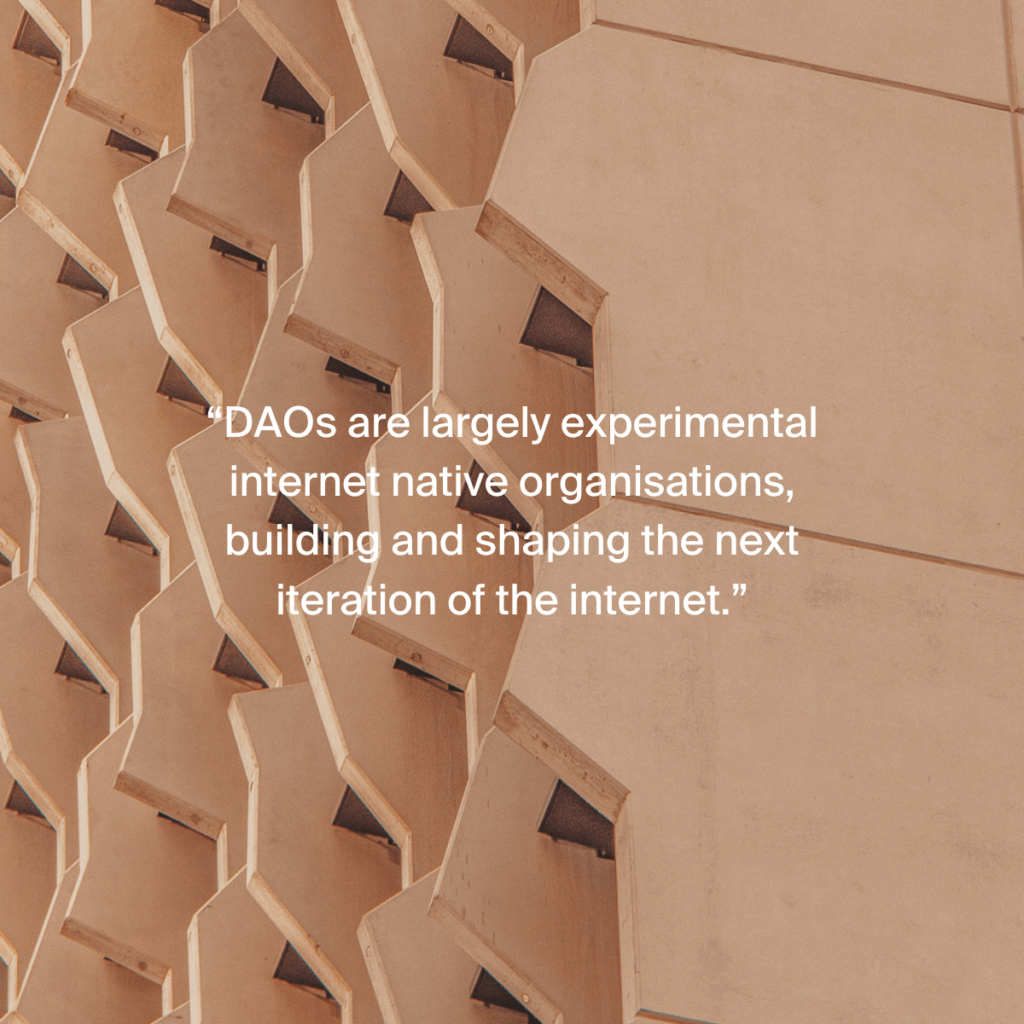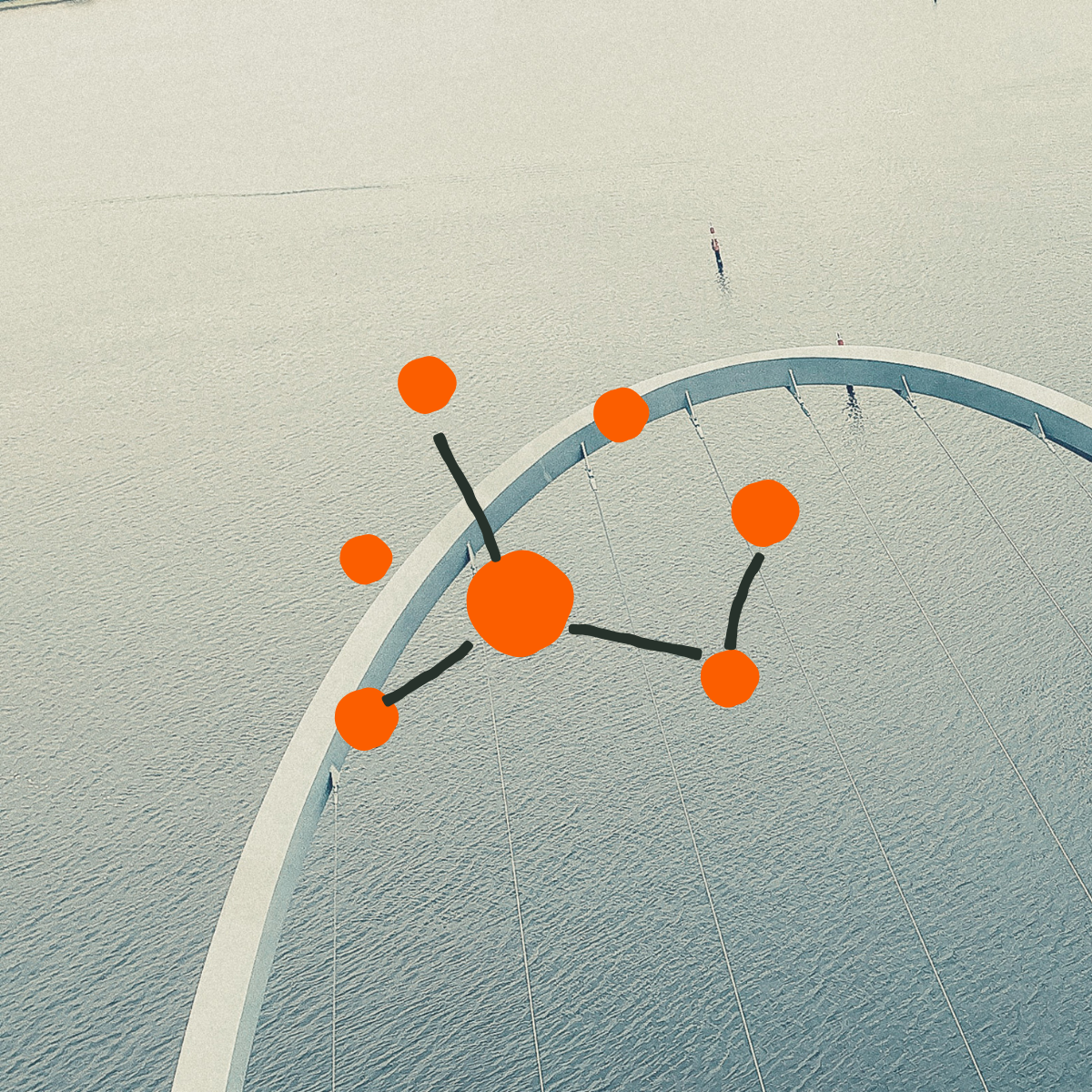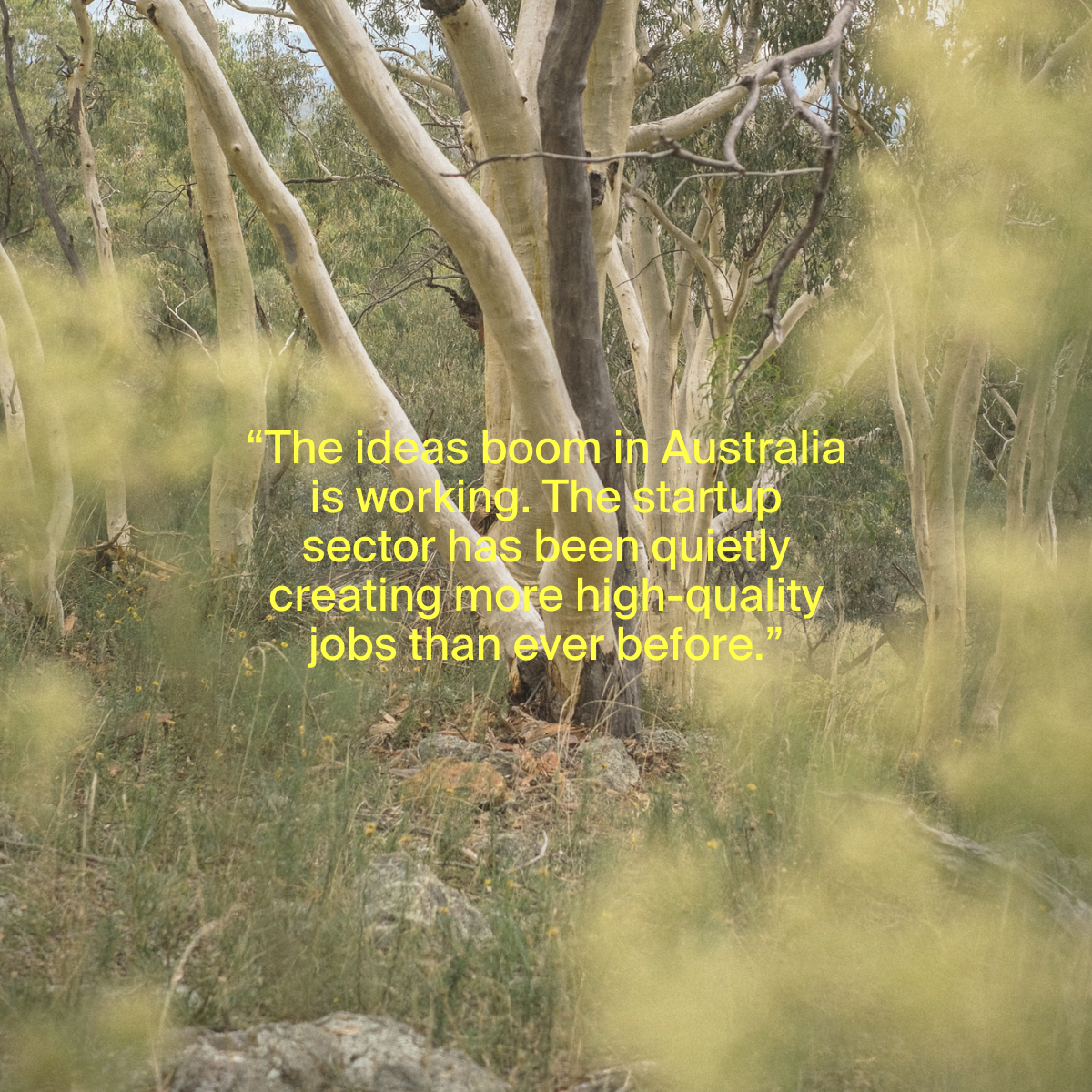In late 2021, ConstitutionDAO raised ~$47 million USD in Ethereum in an attempt to purchase 1 of 13 remaining copies of the United States Constitution at a Sotheby’s auction. Despite losing the bid, ConstitutionDAO broke the record for the largest amount of crowdfunded capital raised within a 72 hr time frame.
More importantly, they introduced DAOs to a mainstream audience with a strong but simple message – the constitution for the people should be owned by the people – and decentralisation is the first step towards democratising ownership.

OK…what the heck is a DAO though?
Whilst a unified definition of DAOs is still a WIP, we think of DAOs or Decentralised Autonomous Organisations as a Web3 native model of collaboration, challenging the traditional model of a corporation. Their core attributes boil down to being:
- Without hierarchy
- Decentralised and borderless
- Built on notions of incentive alignment
If we apply a more systematic framework, DAOs can be broken down into the following components:
- Smart contracts: the backbone of a DAO, which codify the rules of a DAO from token emissions to thresholds for passing proposals.
- Whitepapers and community-led initiatives: quintessential for providing thought leadership and guidance for shaping culture.
- Tokens: the focal point underpinning the DAO paradigm. They crystallise the intangible ideas of decentralisation and are crucial for aligning incentives. Anyone can buy a project’s token, participate in governance and ultimately benefit from value accrual; should the project be an ongoing success.
The DAO ecosystem has been expanding rapidly. In Jan 2021, DAOs were managing $400,000 and had a combined total of 13,000 participants. As of Dec 2021 DAOs were handling $12.2 billion across 1.6M members.

Let’s wind back the block
DAOs are beginning to gain mainstream traction, but they’ve existed in the crypto vernacular since 2016. The first DAO, creatively coined “The DAO”, was an investor-directed venture capital fund that sought to crowd raise funds through initial token sales. Unfortunately, the exploitation of The DAO in June 2016 effectively halted all DAO developments.
It wasn’t until the emergence of DeFi (Decentralised Finance) that DAOs started to re-emerge as an attractive way for projects to demonstrate their commitment to decentralisation through community governance.
One of the first DeFI DAOs to emerge was MakerDAO. MakerDAO was a peer to contract over-collateralised lending protocol which underwent “progressive decentralisation”. Today, the governance token (MKR) gives DAO members the ability to vote on proposals and parameters that could influence the protocol’s future.
The DAO ecosystem today
MakerDAO, AAVE and Compound were amongst the first DAOs referred to as protocol DAOs – a subset of product DAO. Since then, the DAO ecosystem has grown and DAOs have diversified. The new categories to emerge include:

Cool… so DAOs exist, what’s in it for me?
Looking for a meaningful way to participate in communities of your interest, not limited by geographical boundaries? DAOs might be the solution for you.
Today, DAOs are touted as the future of work and are actively re-imagining and challenging the corporate form. They are attempting to remedy the inherent limitations and flaws of the traditional corporation by solving the following issues:
- Misalignment arising from the separation of ownership and control: DAOs aim to overcome these misalignments by giving token holders control and ownership. This allows DAOs to remove layers of inefficiency arising from information asymmetry between shareholders and directors. Instead, DAOs allow collectives to work dynamically and self-organise to achieve desired goals and outcomes.
- Single point of failure: DAOs have a framework of distributed decision making. This means the survival of the DAO is dependent on the strength and collective participation of the community. If core DAO contributors make poor decisions, DAOs can course-correct rapidly and recover by ousting bad actors and conducting internal restructuring.
- Inefficient use of resources: By harnessing the community’s combined expertise, knowledge and experience, DAOs enable optimal use of collective intelligence. This encourages more robust outcomes for collective decision-making and provides a strong foundation for natural leaders to rise. It also enhances the adaptability of DAOs to changing market conditions and gives DAOs with the ability to pivot when faced with novel situations.

I’m sold. Where do I sign up?
In the spirit of fairness, before you quit your job and become a DAO contributor, DAOs in their current form aren’t without practical challenges. DAOs are yet to figure out:
- Viable alternative to centralised decision making
Despite what DAOs may tell you, there is a place for centralisation within business operations- hence the persistence, various iterations and refinement of top-down management processes over the centuries. Centralisation is clearly a more efficient structure for production.
In their current form, DAOs are reminiscent of dynamic, amorphous, self-organising entities. They serve as a litmus test for organisational governance models and the feasibility of decentralised business structures.
DAOs are constantly balancing competing imperatives of efficiency with decentralisation, ideation and creativity. DAOs hope to unify these paradigms and rewrite the playbook on corporate governance whilst dismantling the archaic hierarchical structures of traditional corporations.
- Maintaining operational efficiency as they scale
Generally, DAOs appear successful at achieving macro-level consensus. However, occasionally, issues arise at the micro-level or when creating a framework for implementing macro decisions. Whilst DAO specific tools and the refinement of DAO proposal processes have alleviated some of these issues, best practice is yet to emerge. - Voter apathy
DAOs can be overwhelming. The constant stream of proposals without clear, direct utility or benefit to the community may result in apathy. Whilst practices like “delegated voting” or “liquid voting” are being tested to increase engagement, such practices are diametrically opposed to the fundamental ethos of decentralisation.
- Incentivising long term alignment
Long term incentive alignment is difficult in Web3, with DeFi 2.0 particularly susceptible to yield farming and vampire attacks. This, in tandem with shifting sentiments towards DeFi 2.0, has served as an impetus for protocols to develop novel token distribution designs and incentive mechanisms to encourage long term alignment and investment.

Hold up. I thought this was a “Case for DAOs”?
It is…but only if you’re willing to embrace uncertainty, are cautiously optimistic, and are as excited about a decentralised future as much as we are.
DAOs are largely experimental internet native organisations, building and shaping the next iteration of the internet. They offer novel and unprecedented avenues for collaboration and achieving consensus and are redefining the future of work.
At AirTree, investing in DAOs is about:
- Recognising the importance of democratised access and participation in web3
- Supporting infrastructure seeking to remove barriers and facilitate access to web3.
- Encouraging grassroots and community-driven innovation.
- Trusting global collectives to build a future we want to participate in and be a part of.
We’ve had the privilege of meeting and investing in some of the most incredible founders and DAO leaders in the ecosystem. They are game-changing innovators challenging legacy systems, building cutting-edge tech and paving the way for the next generation of creators and builders. To date, the investments we’ve announced include:
- Immutable: A layer 2 scaling solution for NFTs on the Ethereum network.
- Altered State Machine: Creating evolving gameplay by Integrating AI with NFTs
- Zeta: DeFi derivative protocol building the first options and futures DEX on Solana.
- ReputationDAO: Building a reputation layer to facilitate under-collateralised lending.
- Crypto Tax Calculator: Creating a robust tool-kit to simplify crypto tax reporting and accounting.
Crypto is a new frontier of technology made for digital natives, by digital natives. This technology has the potential to fundamentally alter the way we connect, interact and collaborate with the people around us and across the world, and much of its potential still remains undiscovered.
As our lives become increasingly intertwined with the Web3 digital landscape, we aim to work closely with founders building sustainable protocols, driving innovation and creating a more inclusive crypto ecosystem.
Our conviction in decentralisation remains strong despite the turbulent times, and we’re constantly inspired by the immense talent in the crypto ecosystem. If you’re building the future of web3 one hash at a time, we’d love to meet you.








